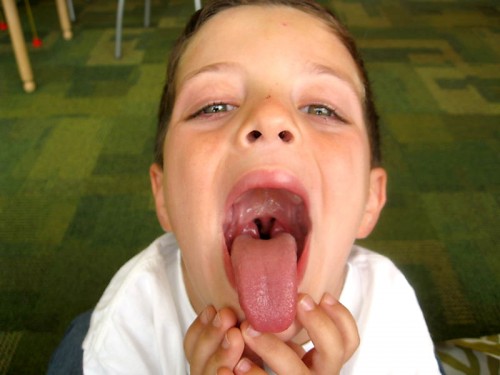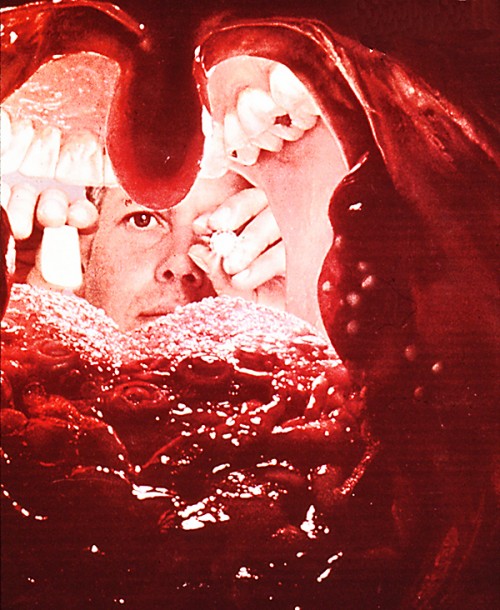Due to editing and space constraints, my (newspaper) article on tonsillectomy two weeks ago did not present the entire picture of how physicians feel about this surgical procedure… and generated several additional questions – which we will cover here.
Read more→
I have been asked several times this week about tonsillectomy – whether or not a child should have their tonsils taken out by surgery. Usually the question is in response to a sore throat of some kind, whether or not there is an infected tonsil.
There are just so many variables (i.e. whether it is acute or chronic, allergic or contagious etc.) that my reply must be largely individualized; so, a short article cannot adequately cover the topic.
Read more→
What would you think if your child, who had been toilet-trained for many years, began wetting the bed but was otherwise healthy and in no discomfort; or, if your little girl, 2 1/2 years old, began refusing to sit on the toilet, had a low-grade fever, and was extremely irritable; or, if your 15-year-old boy told you that he had pain on urination for the past four or five days and was now passing bloody urine; Read more→
Trying to catch up on all the recent research findings about infant nutrition, specifically breastfeeding, we’ve already described a fair number of new findings. We’ll conclude today with a fairly comprehensive listing of new recommendations. Read more→
One of the most common topics for medical articles these days (besides immunizations) is breast feeding. There’s really a lot of them. It’s almost like people are trying to make a point.
Read more→
The intro to “Billy Twitters and His Blue Whale Problem“ is merely the tip of Mac’s iceberg: he lectures and he writes books children can get lost in reading. He used to run a free tutoring center for kids in the back of a pirate supply store but now runs the same in a time travel emporium.
The inimitable Mssr. Barnett seems to have a tiny bit of a problem with boundaries – the ones between wishes and reality. Watch how he explains himself in this TED talk describing why a good book is like a secret door, how writing should escape the page, that art is a doorway to wonder… and see if you can spot his plan to send excess Blue Whales to willing kids.
We’ve been reviewing all the new pediatric health-care guidelines published last year in the past two articles. So far we’ve found that new research prompted governing groups to release care-guidelines for Congenital Dislocated Hips, Calcium supplementation, Fluoride supplementation, Read more→
Eight major sets of published guidelines for children’s health care were developed in 2014. We are discussing them (in lay terms) and how they affect the way we help children stay healthy.
Read more→
Today we go from previous posts on “Vintage Medical Advice” to several new treatment guidelines so “hot off the press” they are still smoking!
Read more→
Two Thousand Fourteen was a busy year for medical organizations making treatment guidelines. I counted at least seven of them applicable to children, from ACL (Anterior Cruciate Ligament) tears to Flu Vaccinations.
Of course, these are made so physicians can have the advantage of new research and developments being analyzed and recommended by specialty organizations; and so there might be at least some standardization in treatment.
4 Posts in "2014 Medical Guidelines" Series
- 2014 Medical Guidelines: Intro/Index – 2 Feb 2015
The Intro/Index to the 2014 Medical Guidelines Curated Series of posts.
- Dislocated Hips, Calcium and Flouride – 3 Feb 2015
We go from previous posts on “Vintage Medical Advice” to several new treatment guidelines so “hot off the press” they are still smoking! Dislocated Hips, Calcium and Flouride
- RSV, Drug Testing – 7 Feb 2015
Today we’ll cover new 2014 guidelines for the prophylaxis against Respiratory Syncytial Virus (RSV) as well as how we now think best to handle drug testing in children and teens.
- ACL Tears, Flu Vaccination and Autism – 15 Feb 2015
We’ll finish the set of new 2014 Healthcare Guidlines by examining the new recommendations for physicians treating: Anterior Cruciate Ligament (ACL) Tears, Influenza Vaccination and Autism Spectrum Disorders (ASD).
If you’re wondering about how guidelines are made you may like to try a previous post about evidence-based medicine in the top 50 doctors of all time series.
One only needs to peruse the pages of an old medical text to see how much things have changed in the past 100 years.
Read more→
Don’cha just love Vintage Medical Advice? Page 477 of a 1919 textbook of medicine recommends treating an earache with a baked onion – externally thankfully. Today, we treat ear infections a tad bit differently.
Read more→
:











